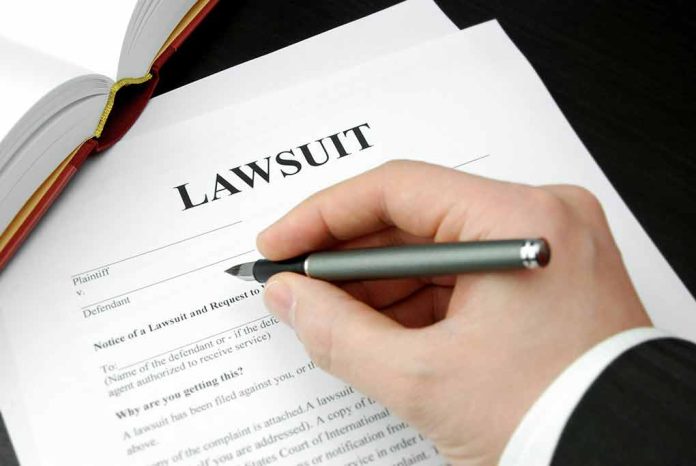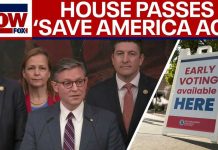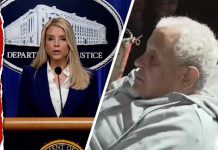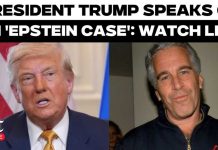
ACLU challenges West Virginia Governor Patrick Morrisey’s religious exemption for mandatory school vaccinations in a legal battle that pits parental religious liberties against established public health protocols and legislative authority.
Key Takeaways
- The ACLU of West Virginia and Mountain State Justice have filed a lawsuit to halt Governor Morrisey’s executive order allowing religious exemptions from school vaccination requirements.
- The lawsuit argues that Governor Morrisey overstepped his executive authority by creating exemptions that state law does not permit.
- Two parents with immunocompromised children, Dr. Joshua Hess and Marisa Jackson, are plaintiffs seeking to maintain strict immunization standards to protect vulnerable students.
- Governor Morrisey contends mandatory vaccination despite religious objections violates religious liberties guaranteed by the U.S. and West Virginia Constitutions.
- Prior to this directive, West Virginia was one of only five states not allowing nonmedical exemptions for vaccines required for school attendance.
Constitutional Showdown Over Vaccine Requirements
The American Civil Liberties Union of West Virginia and Mountain State Justice have launched a legal challenge against Governor Patrick Morrisey’s January directive permitting religious exemptions from mandatory school vaccinations. The lawsuit, filed in Kanawha County Circuit Court and assigned to Judge Kenneth Ballard, contends that the governor has exceeded his constitutional authority by essentially rewriting state law through executive action. West Virginia has historically maintained one of the nation’s strictest immunization policies, allowing only medical exemptions certified by a doctor as necessary due to health contraindications.
“Governors do not rule by decree,” said Aubrey Sparks, Legal Director at ACLU-WV.
The core of the dispute centers on whether Governor Morrisey’s directive violates the separation of powers by circumventing the legislature, which previously rejected a bill that would have created similar exemptions. The ACLU argues that under West Virginia’s constitution, such significant policy changes must come through legislative action, not executive orders. The lawsuit points out that the state legislature specifically considered and declined to enact broad philosophical exemptions to vaccine requirements, maintaining the state’s longstanding commitment to high vaccination rates for school attendance.
Gov. Patrick Morrisey's executive order permitting religious exemptions for vaccines is being challenged in court. https://t.co/RtrxOilWuA
— Eyewitness News (@wchs8fox11) May 23, 2025
Religious Liberty vs. Public Health Protections
Governor Morrisey’s directive instructs health officials to grant religious exemptions when families sign a document stating their objections. He defends the order by citing the Equal Protection for Religion Act, passed in 2023, which states that government actions cannot burden religious exercise without serving a compelling interest. Morrisey maintains that mandatory vaccination despite sincere religious objections substantially burdens the free exercise of religion in violation of the inherent religious liberties guaranteed by the Constitutions of the United States and West Virginia.
“Substantially burdens the free exercise of religion in violation of the inherent religious liberties guaranteed by the Constitutions of the United States and West Virginia.” said Patrick Morrisey.
The governor has vowed not to rescind the order, emphasizing his commitment to ensuring that the religious rights of public-school students are protected and that those students are not denied access to public education because of their religious objections to compulsory vaccination. This stance reflects growing nationwide tensions between religious liberty protections and public health measures, with conservative leaders increasingly supporting parental rights to make health decisions for their children based on religious or philosophical grounds.
Why is the ACLU suing over vaccine exemptions—and is it really just about executive power? The latest legal clash in West Virginia blends politics, religion, and public health. Read what’s behind the lawsuit:https://t.co/dCoMCavPHF
— Religious Liberty – ReligiousLiberty.TV (@RelLibertyTV) May 24, 2025
Protecting Vulnerable Children
The plaintiffs in the case include Dr. Joshua Hess, a pediatric hematologist and oncologist with an immunocompromised child, and Marisa Jackson, whose child is especially susceptible to illness. Both parents have previously advocated against non-medical exemptions before the legislature, highlighting the life-threatening risks that lower vaccination rates pose to vulnerable children who cannot be vaccinated for medical reasons. Their involvement underscores the personal stakes in this policy dispute for families with medically fragile children who rely on high community immunity rates for protection.
“Parents should be able to know their child will be safe when they send them off to school” said Sarah Brown, MSJ Executive Director.
The lawsuit specifically seeks a court order to ensure compliance with state law and prevent exemptions that conflict with existing statutes. For decades, West Virginia’s strict vaccination requirements have contributed to some of the highest childhood immunization rates in the nation, with medical experts generally crediting such policies with preventing outbreaks of serious diseases like measles, mumps, and whooping cough. Prior to Morrisey’s directive, West Virginia stood with California, Maine, Mississippi, and New York as the only states not permitting non-medical exemptions for school vaccinations.
The West Virginia chapter of the American Civil Liberties Union filed a lawsuit on behalf of two parents Friday seeking to block an executive order by Gov. Patrick Morrisey allowing for religious exemptions to the state school-age immunization program.https://t.co/fqdOF70Xx4
— Steven Allen Adams (@stevenadamswv) May 24, 2025
Legislative Intent vs. Executive Action
The legal challenge highlights a fundamental tension in governance: when can executive action legitimately reinterpret existing law versus when must changes come through the legislative process? West Virginia law mandates vaccination against several diseases for school attendance, with the legislature deliberately maintaining a strict medical-only exemption policy despite multiple attempts to broaden it. By issuing his directive, critics argue Governor Morrisey has attempted to bypass the normal democratic process, effectively rewriting statutes without legislative approval.
“Ensure that the religious rights of public-school students are protected and that those students are not denied access to public education because of their religious objections to compulsory vaccination.” said Patrick Morrisey.
This case represents a significant test of executive power in the realm of public health policy. While conservatives generally favor religious liberty protections and parental rights, they also traditionally advocate for strict separation of powers and limited executive authority. The outcome could set an important precedent for how states balance religious freedom claims against public health regulations, particularly in school settings where the health of all children is interconnected. The court will now determine whether Governor Morrisey’s religious exemption directive can stand or must yield to the existing legislative framework.













